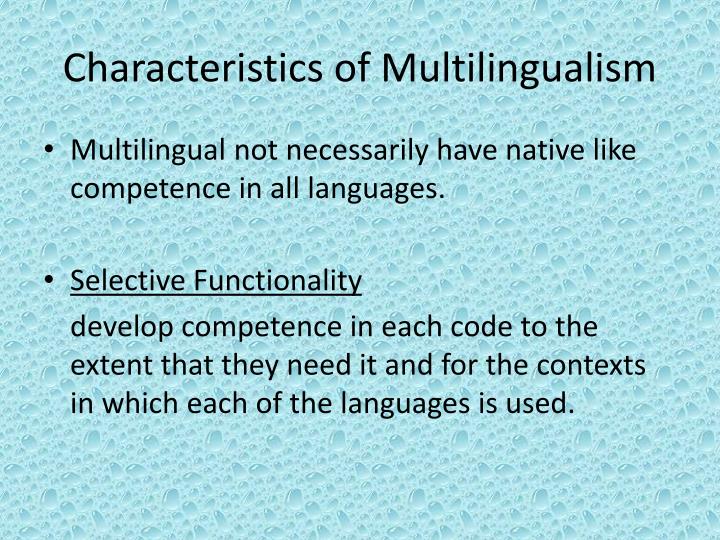

Members view this alternation as a shift between two distinct entities, which are never mixed. 3 Blom and Gumperz describe CS: “In their everyday interactions, they select among the two as the situation demands. In their study, Blom and Gumperz look for “social meaning” in how people use their “linguistic repertoire.” 2 Ranamål is a “prestige” dialect and Bokmål is a standard language taught in schools in northern Norway. In the literature, code-switching can also be referred to as “codeswitching” or “code switching.” This author chooses to use the hyphenated version, as it appears in a seminal article by Jan-Peter Blom and John Gumperz describing code-switching in Norway between two language varieties, Ranamål and Bokmål. This literature review is a selective review of the vast literature on code-switching (CS), covering some key studies and works in CS.
#Linguistic repertoire gumperz professional#
Code-switching has many implications for library service, especially relating to professional standard 6, Linguistic Diversity, of ACRL’s 2012 Diversity Standards Cultural Competency for Academic Libraries, as will be examined in the discussion section. Even though English is widely considered to be the language of the academy, non-English languages are spoken in academic libraries all the time and used for a variety of information seeking and media consumption. For students with another language besides English, these data show that language and information use and seeking are intertwined. This triangulated approach shows a nuanced picture of the language preferences and information use of foreign-born students as a student population. This paper provides qualitative and quantitative evidence that foreign-born students who use academic libraries do switch languages when communicating and use different languages for different kinds of information tasks. Librarians are interested in providing access to resources, creating a friendly and welcoming environment, and accommodating the behaviors and preferences of the library’s users. The data analyzed here, from focus groups and a survey, show how code-switching works in relation to topics of concern to academic libraries. The basic research question the author investigates is whether there are types of information activities and places where multilingual students code-switch. The author coined the term “information code-switching” to distinguish it as a kind of code-switching that refers specifically to the preferences of a person when it comes to choosing a language or dialect for a particular kind of information behavior. Since information is coded in language, the author will refer to the phenomenon as simply information code-switching, referring to switching languages for a particular information task. 1 The author was concerned with how individuals switch languages for different information tasks. Based on a quantitative and qualitative data set collected by the author, this study examines a concept called code-switching, a linguistic phenomenon where speakers change between two or more languages or between varieties of a language within a speech act or discourse. This paper is about foreign-born students’ language preferences and information use in academic libraries. The author discusses the practical implications of these findings on academic library services in relation to ACRL’s 2012 Diversity Standards Cultural Competency with an emphasis on standard 6, linguistic diversity. The main finding is that students’ culture and language represent an active influence on and important part of their identity, information consumption, and academic socialization. Using data from focus groups and a survey tool, this paper examines language preferences of foreign-born students for particular information tasks. Code-switching is an active research area that has significant implications for academic libraries. Initially coined by sociolinguists, the term code-switching refers to the alternation of languages by multilinguals. Information Code-Switching: A Study of Language Preferences in Academic Libraries


 0 kommentar(er)
0 kommentar(er)
